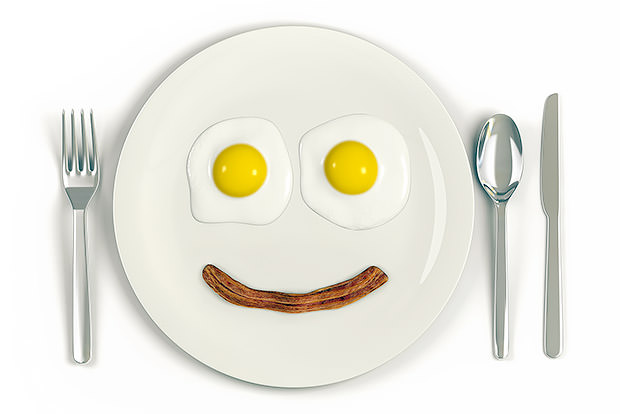
There are many forms of high-protein, low-carbohydrate diets. Some are prescribed by doctors to control conditions such as diabetes. Others put you at risk for nutrient deficiencies. It’s important to define what the eating plan entails to determine if it will benefit your long-term health — beyond a quick fix for weight loss. Here are a few things to think about before cutting out carbs.
Carbohydrates do not "make you fat." Carbohydrates are macronutrients and the primary energy source for the body. Eating carbohydrates does not directly result in weight gain — although a diet high in refined carbohydrates (sugar, white flour, processed grains) is likely to be high in calories. Large portions and excess calories are the culprits when it comes to weight gain, not carbohydrates.
High protein diets may stress the kidneys. The byproducts produced when kidneys break down protein can be harmful when concentrations becomes too high in the bloodstream. That being said, in a study by the Indiana University School of Medicine, researchers found that after two years of eating a high protein, low carb diet no harm to kidney function was detected in healthy obese patients when compared to those eating a standard low-fat diet. But even researchers caution that those involved had no evidence of chronic kidney disease or other illness before adopting this eating style. High protein diets are strongly discouraged for anyone with reduced kidney function.
High protein diets can be high in saturated fat. High protein diets that rely on animal products for increased protein can increase saturated fat intake. The American Heart Association advises limiting saturated fat intake to less than seven percent of total calories per day to reduce the risk for heart disease. When increasing protein, it’s important to include plant-based sources. Beans, nuts, and seeds provide protein along with healthy fat, fiber, and important vitamins and minerals.
High protein diets may affect bone health. Research shows that high protein diets, especially those high in meat products, can increase acid levels in the body. In high acid conditions, calcium from the bone breaks down to help neutralize the acid which weakens the bones over time. This is especially concerning for postmenopausal women who may already be experiencing accelerated bone loss due to drops in estrogen levels.
Low carbohydrate diets can be low in micronutrients. When restricting carbohydrate intake so much that it reduces or eliminates your intake of fruits, vegetables, and whole grains, you are at an increased risk for nutrient deficiencies. These foods contain valuable vitamins and minerals necessary for health. They also contain unique phytonutrients that cannot be found from other sources (including supplements).
Low carbohydrate diets can be low in fiber. Fruits, vegetables, legumes, and whole grains are the best sources for fiber. Fiber improves digestive health, lowers blood cholesterol, and helps to control blood sugar. Cutting out foods rich in fiber causes you to miss out on these healthy benefits. Recommended fiber intake is about 25 grams per day. It is nearly impossible to consume this amount of fiber when cutting out these naturally fiber-rich foods.
Sources



 3 Healthy Lunches for Your Work Week
3 Healthy Lunches for Your Work Week
 5 Tips for Stretching Your Budget for Healthy Food
5 Tips for Stretching Your Budget for Healthy Food
 Best Ways to Reduce Added Sugar
Best Ways to Reduce Added Sugar
 Healthy Tips to Lighten Up Picnic Foods
Healthy Tips to Lighten Up Picnic Foods
 Do You Need to Drink Milk?
Do You Need to Drink Milk?
 Tips to Keep Track of Water Intake
Tips to Keep Track of Water Intake
 Butter vs. Margarine: What’s the Best Choice?
Butter vs. Margarine: What’s the Best Choice?
 7 Good Mood Foods
7 Good Mood Foods

 Pinterest
Pinterest RSS Feed
RSS Feed